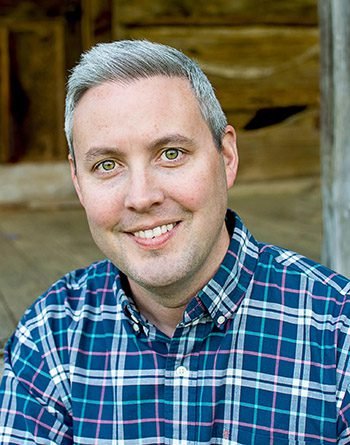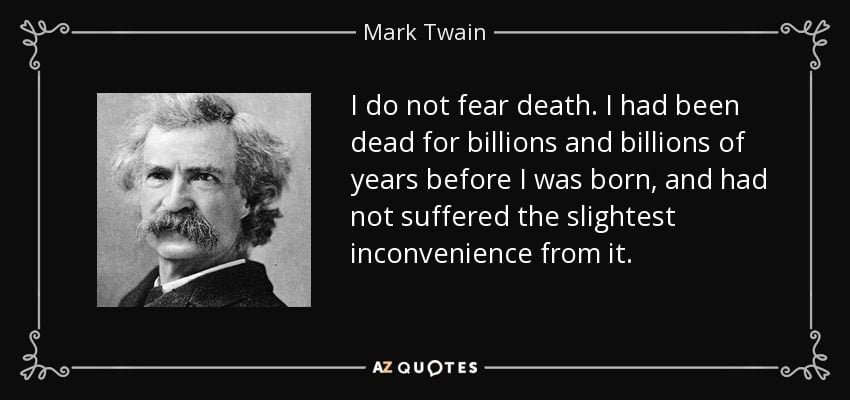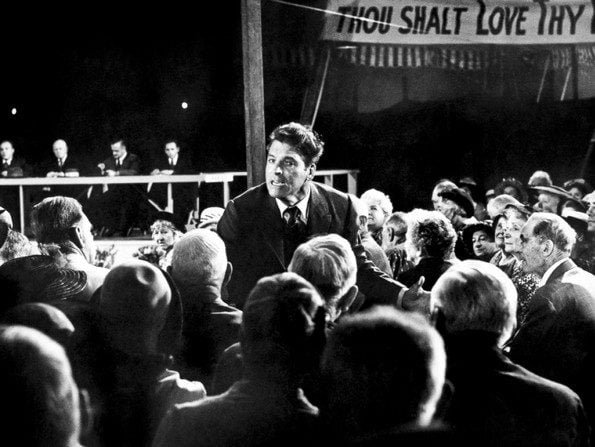
Repost from 2015. Edited, rewritten, and corrected.
Laura Hardman, the wife of Independent Fundamentalist Baptist (IFB) Evangelist Don Hardman, has written an autobiography titled Laura’s Light. The book is 277 pages long, and is published by Victory Baptist Press. The book was released in 2010.
Laura’s Light reads quite a bit like the Bible. Laura Hardman’s story is one of bondage to sin and deliverance from that sin through the blood of Jesus Christ. Also, like the Bible, it is littered with fictions and omissions.
Hardman’s story begins June 14, 1955 in Salem, Ohio. The first forty-five pages of book detail Hardman’s hardscrabble life, a life she says God used to prepare her for future life as an evangelist’s wife.
The rest of the book details Hardman’s marriage to Don Hardman, their conversion to Christianity, and their subsequent work as evangelist and wife.
There is no question that Don and Laura Hardman are sincere, devoted followers of Jesus Christ. I have no reason to question their commitment to Jesus. However, Laura’ Light does bring to light some glaring issues in the thinking and attitudes of Don and Laura Hardman.
The book is hard to read. It has numerous grammatical errors, and I found myself speed reading at times, wearied from the poor grammar. Hardman would take my criticism of her grammar as a badge of honor. She is quite proud of her hillbilly ignorance.
Hardman writes in the preface:
The words of this book are simple and easy enough for a child to read. My education is very limited and my vocabulary is not with enticing words of men, because I am writing it from my heart and not from an educated view.
Hardman reiterates this point several times in the book. I can appreciate someone who writes from the heart. I do the same on this blog. However, Hardman should have engaged the services of someone who could correct the glaring grammatical errors. These errors detract from the story Hardman is trying to tell.
The book reveals that Hardman has racist tendencies. I am sure she would be appalled at being called a racist, but her language in the book reveals a deep-seated racism that is quite common in IFB circles. This kind of racism is so much a part of Hardman that she might not even be aware of how offensive her words are.
Perhaps Hardman is just refusing to be politically correct. Perhaps she is just refusing to use the language of the liberals she rails against in the book.
Here are a couple of choice quotes that show, at the very least, a lack of understanding of the modern world we live in:
One week we decided to take four of the ghetto kids on an outing to the Gulf of Mexico to play with them in the water . . .
The humorous part of this story is that when they were all done playing in that salty water, I took each one into the back of the truck and dried them off. The drier they got, the whiter they got! Black folks don’t have the pores like we have to produce oils, so they have to put lotion on their skin to keep it black and not a ashy color. It was a good thing I had some cocoa butter on hand, and I was able to soak them down before I got them back home. (page 189,190)
Speaking of a trip she and her husband took to Africa to preach and teach:
One day one of the preacher boys asked me if I would cut his hair. When I looked at him I figured it would be similar to trimming my black poodle, so I agreed. (page 233)
Speaking of a trip Hardman and her husband took to Hawaii:
It was on November 3, 2002, very early in the morning that we boarded a plane in New Orleans . . .
It had been just a little over a year since 9-11 . . .
It became a little more frightful when I saw a couple of rag heads get on the plane… (page 247)
Throughout the book, African-Americans are called blacks and Hispanics are called Mexicans. I know there is disagreement about which terms should be used, but taken together with the quotes I mention above, the book has quite a racist tone. Hardman also repeatedly calls homosexuals sodomites — a fundamentalist term of derision and hate.
I find the racial overtones interesting because the Hardmans spent most of the year ministering to street people in the New Orleans area; people who are overwhelmingly people of color.
Another thing that stood out to me in the book was Hardman’s view of sex, married men, and her own sexuality. It is a subject that comes up repeatedly in the book.
If Hardman is to believed, married men chased after her from her teen years forward. Repeatedly, Hardman writes about married men trying to get her to have sex with them. She uses Christian-correct words for their actions, but there is doubt they were after her for sex.
After Laura Hardman and her husband were converted and in the ministry, Hardman finally saw the light about married men wanting to have sex with her.
Hardman writes:
All the way through my Christian life it seemed I had to learn things the hard way. However, one thing was for sure, I never forgot the lesson I learned. Each day the pastor come to the trailer, and he and Don would decide where they would make calls that day. There is one day he came over, and for the life of me I can’t remember what I was wearing, but it must have looked worldly and sensual. He told my husband he could not look at me because my clothes were revealing the contour of my body. Talk about a dagger through my heart. I could say I had no idea what my well-built body did to men, but I really could not because I was still getting whistles when I went to the mall and shopping centers, even after salvation…
If I caused even a strong man to abstain from looking at me, what was I doing to the weak? (page 95)
I was astounded when I read this passage and others that spoke of Hardman’s sexuality. Perhaps the problem was not Hardman, but the preacher man who couldn’t keep his mind pure — a common problem for poor, lustful, weak Baptist men.
Hardman portrays life in the ministry as one of standing for the truth at all costs. She details loss of friends and loss of meetings because of their stand for the blessed truths of the King James Bible. Not one time does Hardman ever speak of a problem being their fault. It’s always the liberals’ fault. There is always an enemy, imaginary or real, they are fighting. This is the kind of life narrow thinking Baptist Fundamentalism brings.
Hardman glosses over a few pertinent issues in her life and the life of her evangelist husband Don Hardman. They practiced this subterfuge the whole time they were holding meetings for me in Somerset and West Unity, Ohio
On page eighty-seven, Hardman speaks of Don’s ministerial calling. Don completed a one-year Bible correspondence course with Liberty Baptist Home Studies. The church they were part of at the time, First Baptist Church, Findlay, Ohio did not believe that Don was called to the ministry. Hardman gives the reason as:
his (Don’s) wicked past.
That’s it. This is the same line the Hardmans used time and time again when asked about their life BEFORE Jesus saved them. In their mind, the past was the past. It was all under the blood of Jesus, never to be remembered again
So what was Don’s wicked past? Don was divorced. Not only was Don divorced, but his first marriage was to a thirteen-year-old girl he got pregnant. He was seventeen when they married. (I have a copy of the marriage license that proves this.)
Two children were born of Don’s first marriage. Laura claims the children as her own, a claim I suspect the biological mother finds quite offensive (a woman, by the way, I have corresponded with over the years). While Hardman does say that Don had two children, she never calls herself their step-mother. In her mind, when Jesus came into their life EVERYTHING became brand-new, and that included the children having a new mother.
Hardman details their lives as traveling evangelists. Laura’s husband Don became an evangelist in 1987. Prior to that he pastored a church in West Virginia. Hardman spends a lot of time mentioning people who helped them along the way. I was quite surprised that Bruce Gerencser and Somerset Baptist Church got no mention at all. We were one of the first churches to have Don come and preach. Don held four meetings for me in Somerset, Ohio, and another meeting in West Unity, Ohio.
We were close to the Hardmans. We traveled to several churches where Don was preaching to support him. We even took a group from our church to the Hardman’s home church, Midway Bible Baptist Church in Fishersville, Virginia, to attend their annual Bible conference. We graciously supported the Hardmans financially. We spent several days in northern Ohio with the Hardman’s family while Don and Laura were off the road. Our youngest daughter is named after Laura.
I suspect, like Don’s wicked past, I have been expunged from their memory. Laura’s Light was written in 2010. By then, Laura Hardman had gotten my coming out letter and had written to tell me that I never was a REAL Christian. Perhaps, having a one-time staunch supporter turn atheist was too much for them to bear. No matter what is or isn’t in the book, the Hardman’s know that Somerset Baptist Church and Bruce and Polly Gerencser were very much a part of their lives.
The book is titled Laura’s Light. Laura Hardman has a persona she wants to portray, and she does a good job portraying it. However, this book is a mixture of fact and fiction.
Hardman wants to portray her life as one of continued spiritual ascendency after salvation. For this reason, her story has an untrue ring to it. Life is messier than that. Sins. Lapses in judgment. Wrong. Error. Doubts. These are the kind of things that say to a reader, here’s a real person. Unfortunately, like many Christian autobiographies, the book subject is given God-like qualities, qualities that those closest to them find dishonest and quite amusing.
Where can I buy the book? You can purchase the book at Victory Baptist Press. I know of no other place it is available.
Here’s a video of Laura Hardman singing If I Knew of a Land.
News article about Don and Laura Hardman.
Sermon by Don Hardman, preached at Old Time Baptist Church, Buffalo, New York. (sermon begins at the 9:53 mark, after congregational hymn, offering, and special music number)
Bruce Gerencser, 66, lives in rural Northwest Ohio with his wife of 45 years. He and his wife have six grown children and thirteen grandchildren. Bruce pastored Evangelical churches for twenty-five years in Ohio, Texas, and Michigan. Bruce left the ministry in 2005, and in 2008 he left Christianity. Bruce is now a humanist and an atheist.
Connect with me on social media:
Your comments are welcome and appreciated. All first-time comments are moderated. Please read the commenting rules before commenting.
You can email Bruce via the Contact Form.









